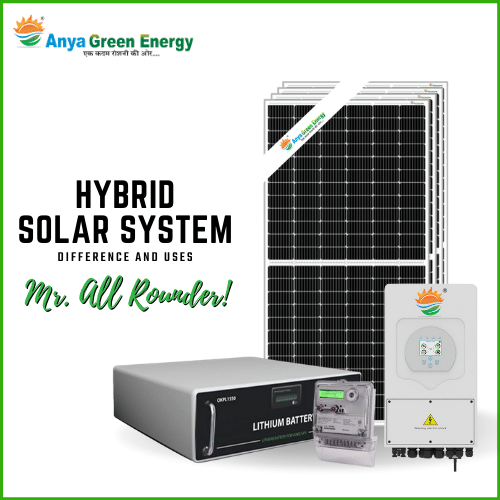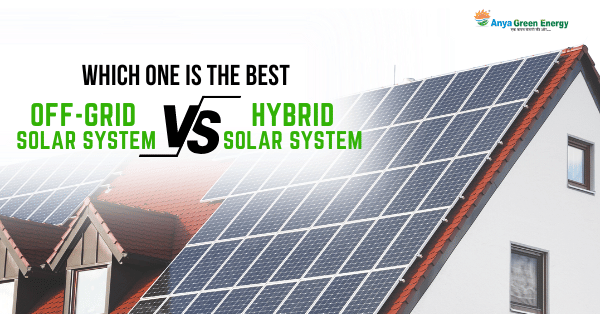HYBRID SOLAR SYSTEM FOR WOOLEN INDUSTRY
In an era where industries are seeking innovative solutions for sustainable operations, the integration of renewable energy sources has become paramount. The woolen industry, known for its resource-intensive processes, is now turning to hybrid solar systems as a transformative solution. This blog delves into the reasons why hybrid solar systems are an ideal choice for the woolen industry, emphasizing their significance, benefits, and the promising future they hold.
GET HYBRID SOLAR SYSTEM FOR WOOLEN INDUSTRY

Why choose hybrid solar system for woolen industry ?
The woolen industry is characterized by high energy consumption in processes like washing, carding, and spinning. A hybrid solar system, combining solar panels with a grid or battery backup, addresses the industry’s energy needs efficiently. This approach ensures a consistent power supply, reducing dependence on conventional, often pollutant-heavy energy sources. It’s a strategic move towards sustainability, aligning the industry with global green initiatives.
Importance of hybrid solar system for woolen industry
The importance of adopting a hybrid solar system for woolen industry cannot be overstated. Firstly, it significantly reduces the carbon footprint associated with energy-intensive operations. By harnessing solar power, the industry can substantially lower its greenhouse gas emissions, contributing to a cleaner, healthier environment.
Secondly, a hybrid solar system offers energy independence. With the capability to generate power even in the absence of sunlight, through grid or battery backup, the industry can operate seamlessly throughout the day and night. This reliability ensures uninterrupted production, ultimately enhancing productivity and competitiveness.
Furthermore, the adoption of hybrid solar systems for woolen industry showcases a commitment to corporate social responsibility. It demonstrates a proactive stance towards sustainable practices, which not only resonates positively with stakeholders but also meets the growing demand for environmentally conscious products.
Benefits of hybrid solar system for woolen industry
-
Cost-Efficiency: Implementing a hybrid solar system reduces energy bills significantly. By harnessing solar power during daylight hours and utilizing grid or battery backup when needed, the industry can curtail expenses associated with conventional energy sources.
-
Reduction in Carbon Emissions: The transition to a hybrid solar system leads to a substantial reduction in greenhouse gas emissions. This environmentally-friendly approach aligns with global efforts to combat climate change and preserves natural resources.
-
Enhanced Reliability: Hybrid solar systems ensure a consistent power supply, even during cloudy days or in the absence of sunlight. This reliability is crucial for maintaining uninterrupted operations in the woolen industry.
-
Long-term Sustainability: Solar panels have a long lifespan, often exceeding 25 years. This long-term investment not only ensures sustained energy savings but also contributes to a more sustainable future for the industry.
-
Adaptability and Scalability: Hybrid solar systems can be customized to suit the specific energy needs of a woolen mill. They are also easily scalable, allowing for future expansion without major infrastructure overhauls.
The integration of a hybrid solar system for woolen industry marks a significant stride towards a sustainable and environmentally conscious future. By reducing reliance on conventional energy sources, the industry can cut costs, lower emissions, and enhance operational reliability. This transition not only aligns with global efforts to combat climate change but also positions the woolen industry as a leader in sustainable practices.
In choosing a hybrid solar system for woolen industry operations, stakeholders are not only investing in the industry’s future but also contributing to a cleaner, greener planet. This paradigm shift towards renewable energy sources is not just an option; it’s a necessity for industries that seek to thrive in an increasingly eco-conscious world. Embracing hybrid solar systems is a testament to the industry’s commitment to sustainability and a testament to its dedication to leaving a positive legacy for generations to come.


